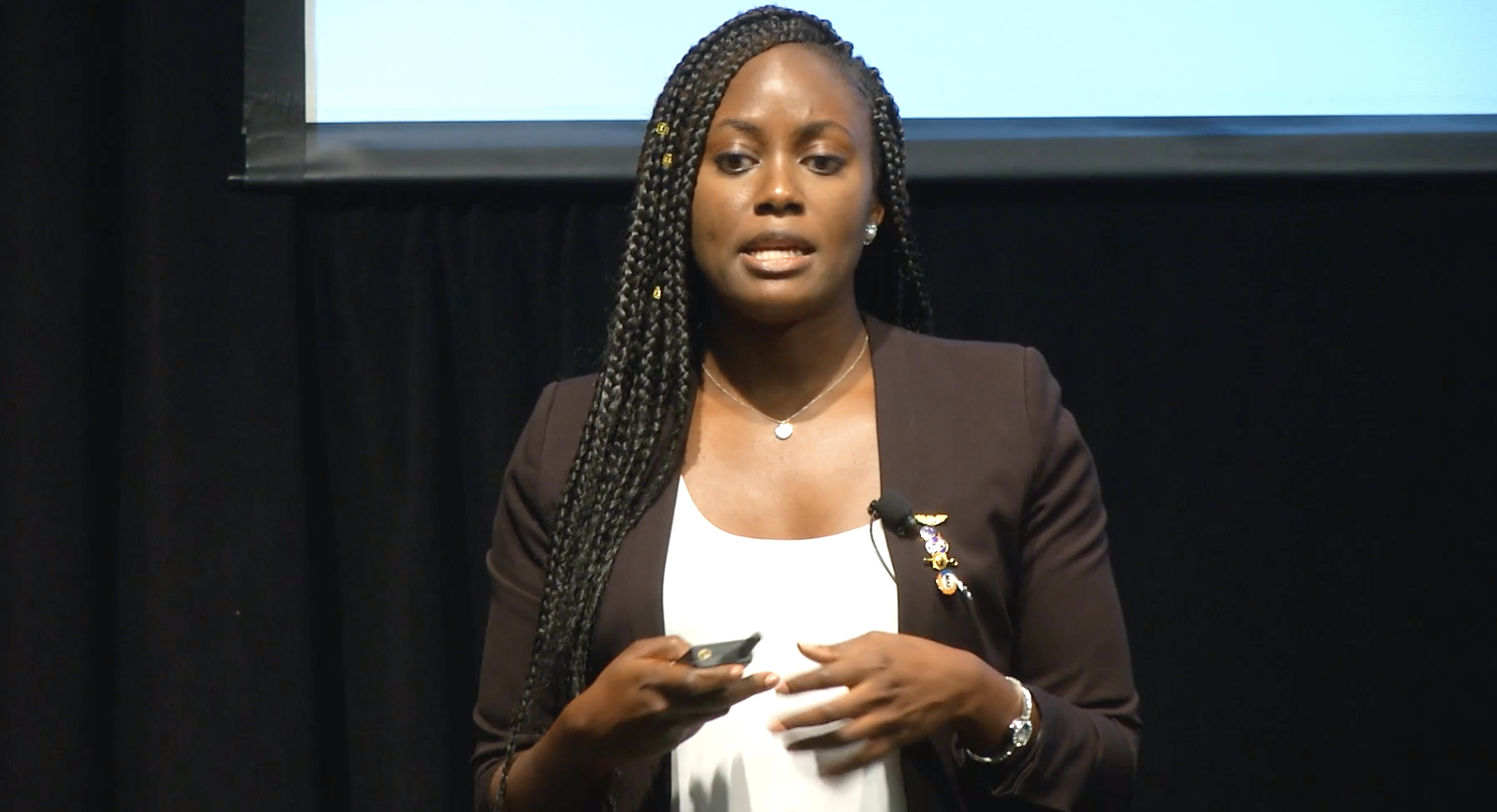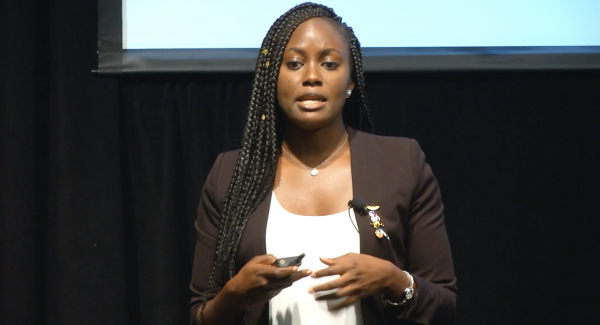It’s no mean feat landing a role at the United States’ National Aeronautics and Space Administration (NASA). Unless you’re someone with an exceptionally sharp intellect and a fascination with the science of the heavens above, you’d probably not get a look in at what is the world’s premier space agency.
That’s why Wendy Okolo, a young Nigerian woman, has become something of a celebrity in recent times. She’s not only a researcher at NASA (an achievement worthy of celebration by itself), she’s also the first black woman to bag a PhD in Aerospace Engineering. And to think that she did so at age 26!
In February, Okolo was named the most promising young engineer in the United States Government at the Black Engineer of the Year Awards held in Washington DC. That accolade triggered a new wave of interest in the exploits of the young Nigerian-American, now 30, and the work she’s doing in aerospace engineering.
The road to her present rockstar-like status is probably already worth a published autobiography; but with a potentially long career still ahead of her, Okolo is choosing to focus on the complex job she’s handling at NASA’s Ames Research Center in Silicon Valley. As a program manager at the centre’s Intelligent Systems division, she’s helping to develop solutions to sometimes tough engineering challenges.
Nevertheless, the demands of her job have not kept her from talking about her journey to where she is at the moment. On the occasions in which the story has been narrated, it tends to convey a couple of important things about her: she’s driven and determined, and she’s also big on young girls getting involved in Science and Math.
Okolo’s advocacy for greater participation of girls and women in STEM fields may be inspired, at least in part, by her childhood experience. She says she had wanted to be an engineer for as long as she could remember. Crucially, her parents supported her. On one occasion, a teacher had claimed that engineering was for boys, and suggested that it wasn’t right for girls to work at “fixing fans.”
“My mother told me ‘that’s not true’,” Okolo recalls, “and she told me all the cool things engineers did, things like designing aircraft and space crafts…and so on.”
Her older sisters also helped spark her interest in the sciences. They would return from school and tell her about the science lessons they had, and have discussions around those topics. For Okolo, those simple conversations fueled her fascination with the way the world worked. She wanted to know more.
Okolo studied Aerospace, Aeronautical, and Astronomical Engineering at the University of Texas, graduating with a Bachelors’ Degree in 2010. While she was an undergraduate, she was president of the Society of Women Engineers at her university and was also an aerospace engineering intern at Lockheed Martin.
Following her graduation, she worked as a graduate student researcher at the Wright-Paterson Airforce Base in the State of Ohio. There, she was part of a team that completed a flight from one coastal end of the United States to the other in just 67 minutes- a fraction of the five hours it takes for the fastest jets to cover the same distance. She says she had to overcome a sense that she didn’t belong with such a smart group of people. But after fixing an error code in the systems there, it dawned on her that she was good enough to be part of the team.
In 2015, Okolo finished her history-making PhD program. Months later, she resumed with NASA.
The Ames centre, where she currently works, is located in Mountain View, California, a city in the Silicon Valley area. Although there are more women taking up positions at STEM research labs and tech startups there and across the world, it’s still a small percentage of the total workforce in science and technology.
Okolo wants to help speed up the process. When she has had the chance to do so, Wendy has spoken to young children and encouraged them to get keen on becoming scientists. But beyond the words, her accomplishments could inspire a generation of girls to defy the limits of professional stereotypes and excel in STEM careers, just like she has.
Featured image source: The Cable


